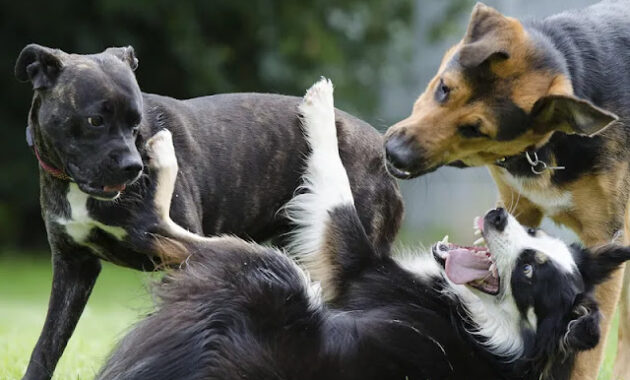Cats are known for their grooming habits, and while it’s great that they keep themselves clean, sometimes it can lead to the formation of hairballs.
Hairballs are clumps of fur and other material that cats swallow while grooming and can cause discomfort, digestive problems, and even blockages.
In this article, we’ll take a closer look at hairballs in cats, what causes them, and most importantly, how to prevent them.
Understanding Hairballs in Cats
Cats have the instinct to groom themselves, and when they do, they swallow loose fur and other debris that get caught in their tongue and teeth.
Most of this material will pass through the digestive system and be eliminated, but sometimes, it accumulates in the stomach and forms a hairball.
Hairballs are not just clumps of fur; they can also contain saliva, mucus, and other digestive secretions. They can range in size from small to large and can cause different symptoms depending on their location and size.
Symptoms of Hairballs in Cats
Some of the common symptoms of hairballs in cats include:
- Vomiting
- Loss of appetite
- Constipation
- Diarrhea
- Abdominal pain
- Coughing or hacking
- Lethargy
It’s important to note that hairballs can also cause more serious problems, such as blockages in the digestive tract, which can be life-threatening. If you notice any of these symptoms in your cat, it’s important to take them to the vet as soon as possible.
What Causes Hairballs in Cats
Several factors can contribute to the formation of hairballs in cats, including:
- Genetics
- Coat type
- Grooming habits
- Frequency of grooming
- Age
- Stress
- Medical conditions
Long-haired cats are more prone to hairballs than short-haired cats and older cats may develop hairballs more often than younger cats. Stress and medical conditions can also play a role in the formation of hairballs.
How to Prevent Hairballs in Cats
The good news is that you can prevent hairballs in your cat. Some of the most effective ways to prevent hairballs in cats include:
- Regular grooming
- High-fiber diet
- Supplements
- Laxatives
1. Regular Grooming
One of the best ways to prevent cat hairballs is to groom them regularly. Grooming removes loose fur and debris, reducing the amount of material your cat swallows while grooming. Grooming also stimulates the natural oils in your cat’s skin, which can help reduce shedding and the formation of hairballs.
2. High-Fiber Diet
A high-fiber diet can also help prevent hairballs in cats. Fiber helps move hair and other material through the digestive system, reducing the risk of blockages. You can add more fiber to your cat’s diet by feeding them high-fiber foods, such as canned pumpkin or psyllium husk powder. Check also The Best Cat Food for Your Indoor Cats.
3. Supplements
Some supplements can help prevent hairballs in cats. Omega-3 fatty acids, for example, can help reduce shedding, and vitamins A and E can help support healthy skin and coat. You can also find hairball-specific supplements, such as petroleum-based gels or chews, designed to help move hair and other material through the digestive system.
4. Laxatives
Sometimes, your vet may recommend using laxatives to help prevent cat hairballs. Laxatives can help keep hair and other material moving through the digestive system, reducing the risk of blockages.
Conclusion
Hairballs can be a discomfort and even a serious problem for cats, but with the right steps, you can prevent them from forming.
Regular grooming, a high-fiber diet, supplements, and laxatives can help keep your cat’s digestive system healthy and free of hairballs.
If you notice any symptoms of hairballs in your cat, it’s important to take them to the vet as soon as possible to rule out any serious underlying issues.
FAQs:
Can I give my cat human hairball remedies?
Human hairball remedies are unsafe for cats and can even be toxic. Always check with your vet before giving your cat any new supplements or medications.
How often should I groom my cat to prevent hairballs?
The frequency of grooming needed to avoid hairballs in cats can vary, depending on your cat’s coat type, age, and other factors. A good rule of thumb is to groom your cat once a week or more if they have a long or dense coat.
Can hairballs be dangerous for cats?
Yes, hairballs can be hazardous for cats if they cause blockages in the digestive tract. If you notice any symptoms of hairballs, it’s important to take your cat to the vet as soon as possible.
What is the best food to feed my cat to prevent hairballs?
A high-fiber diet can help prevent hairballs in cats. You can add more fiber to your cat’s diet by providing high-fiber foods, such as canned pumpkin or psyllium husk powder. Your vet can also recommend foods high in fiber and designed to help prevent hairballs.
Can I use a hairball remedy for a long period?
It’s best to follow your vet’s recommendations for using hairball remedies. Sometimes, a hairball remedy may be needed for a long period, while in other cases, it may only be required for a short period. It’s important to follow your vet’s instructions to ensure the safety and health of your cat.


